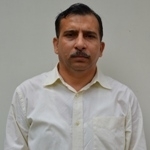|
The election of Nabi Sarnia as an independent candidate from Lok Sabha Kokrajhar constituency in 2014 was a direct result of perceived vulnerability of the non-Bodo community living in Bodoland Territorial Area Districts (BTAD). Nabi Sarnia’s election campaign was supported by Sanmilita Janagosthiya Aikya Manchav (SJA), a conglomerate of 23 non-Bodo organisations and led to defeat of two Bodo candidates. It also made Sarnia, an erstwhile member of ULFA, the first non-Bodo MP from Kokrajhar. The result led to another cycle of ethnic violence by killing of over 46 Muslims by suspected cadres of National Democratic Front of Bodoland (NDFB), Songbijit faction. The election highlighted re-alignment of communities against the Bodos and showed deep societal fissures in the region which has made Bodoland, a major flash point in communal violence in Assam. The apprehension of marginalization within the Bodo community again led to violence in December 2014 when over 70 Adivasis were killed by NDFB, Songbijit faction cadres and displaced over three lakh persons[1]. The forthcoming elections of Bodoland Territorial Council (BTC) in March 2015 can act as a catalyst for another era of uncertainty as the non-Bodo community in BTAD has been opposing creation of Bodoland.
The government polices in northeast India have often been guided by dialogue and settlement plan with a minority group while trying to resolve the impending agitation. Thus, Bodoland came in being in 2003 after signing of the Memorandum of Settlement (MoS) between Indian Government, Assam government and Bodo Liberation Tiger Force (BLTF), who had been demanding a separate Bodo homeland since 1996. Bodoland was created as an autonomous region to safeguard rights of the Bodo community, by amalgamating areas of eight existing districts within Assam. Bodoland now consists of four districts of Kokrajhar, Baksa, Udalguri and Chirang with administrative headquarters in Kokrajhar. The BLTF cadres along with All Bodo Student Union formed the Bodo people’s Progressive Front (BPPF) and BTC was formed in 07 December 2003 with 12 members. Presently, BTC has 46 seats, with 30 seats reserved for the Bodo community, five seats each for all communities and non-tribals and candidates for six seats are nominated by the Governor of Assam form unrepresented communities.
Though the government signed the MoS in 2003, it did not take into account the aspirations of other minority; the Adivasis and the Koch tribes. Today, Bodoland has a multi-ethnic composition with 28% Bodos, 23% Bengali Muslims, 18% Adivasis, 16% Koch Rajbanshis and 14% other tribal groups. Though Bodos are a minority within BTAD in terms of numbers (28%), 30 seats in the council are reserved for them. Thus, a minority group controls access to funds and development of the region. However, creation of BTAD has not led to resolution of the Bodo issue[2]. The demand for a separate Bodoland is being waged by NDFB-S as it has not accepted the 2003 accord. An imbalanced governing structure of BTC has created an atmosphere of mutual distrust and apprehension in the minds of the smaller ethnic groups. Their opposition to the governance model has often led to violence in the past (2008, 2012 and 2014).
The present 46 seat BTC is ruled by Bodoland People’s Front (BPF). The primary electorate struggle in the past has been between BPF and BPPF, the other dominant Bodo political party. BPF has been in power in the 46 member council, since 2005. The present council term ends on 23 April 2015 and fresh council elections are being held in end March 2015. The coming elections are likely to be a sensitive affair with two new entrants in the field. Nabi Sarnia has launched a new political party[3]; Gana Vikash Parishad (GVP) and All India United democratic Front (AIUDF) is also likely to contest the elections[4]. The quest for power will lead to new alliances as BPF had ended its alliance with Congress party last year. Also, the new entrants, GVP and AIUDF are likely to forge an alliance with BPF or BPPF to gain foothold with an eye on the impending Legislative Assembly elections of 2016. The run-up to the election is likely to usher in a state of violence as election time has been often fraught with violence in the past. In the aftermath of 2014 Lok Sabha elections, over 50 persons were killed after BPF had accused minority communities of supporting a non-Bodo candidate.
The security forces have to be vigilant during the coming polls to avoid unnecessary bloodshed as probability of violence in March/ April is very high. Another violence cycle will bring in more uncertainty in BTAD and further aggravate the situation on ethnic lines. The security forces will have to deal with insurgents with firm resolve and bring swift end to any planned misadventure. Meeting aspirations of other ethnic groups; the Adivasis, Koch Rajbanshis and Muslims is now indispensable to develop mutual trust and usher peace. Giving more representation to other communities within BTC may be one solution. Is it time to re-constitute BTC for stability in the region?
The author is Senior Fellow at CLAWS. Views expressed are personal.
|



